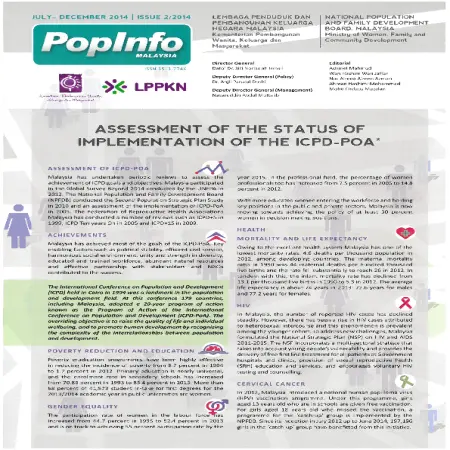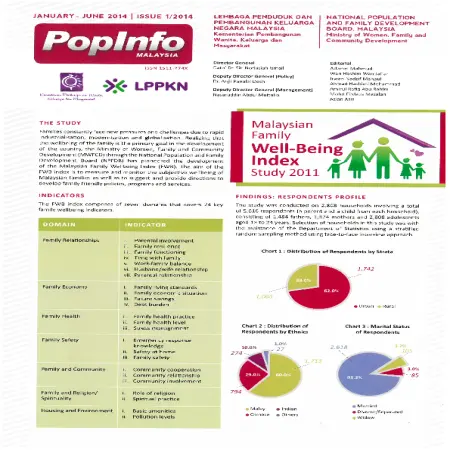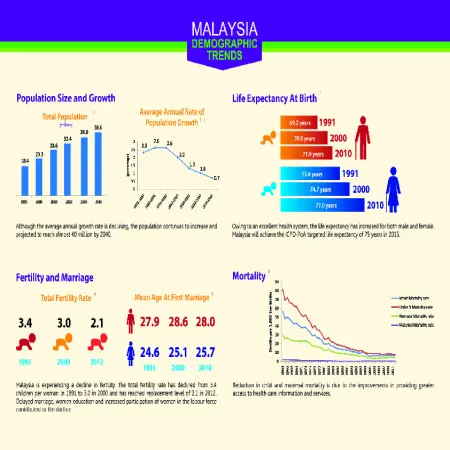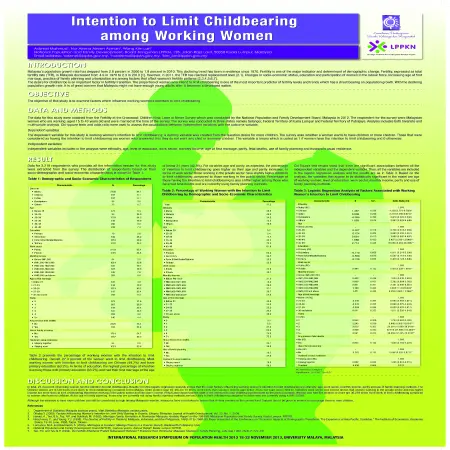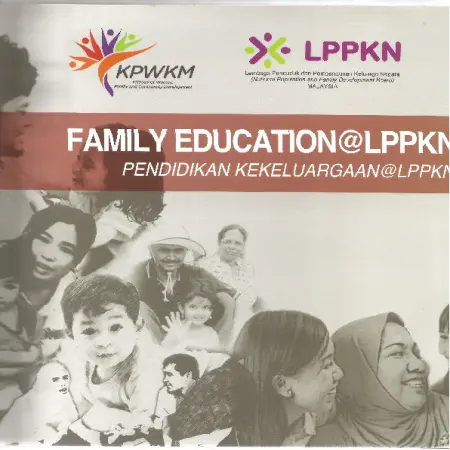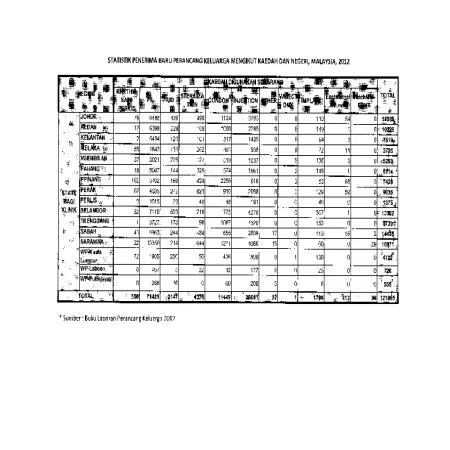Browse by Type
|
|
Bringing up mentally challenged children
Item Type: Article
Editor:
Year: 00/00/2014
Abstract: Children who are mentally challenged are often referred to as being intellectually disabled. It is characterized by below-average intelligence or mental ability (i.e. learning, reasoning, problem solving, etc.) and a lack of adaptive behaviour required for day-to-day living (i.e. interpersonal skills, self-esteem, ability to follow rules/obey laws).
Numerous factors can facilitate its onset, but more noticeably; genetic predisposition (i.e. Down Syndrome), complications during pregnancy or childbirth (substance abuse), injury (i.e. near drowning), trauma (i.e. severe parental neglect) or an infection (i.e. meningitis).
|
|
|
|
|
|
Assessment of the status of implementation of the ICPD-POA
Item Type: Newsletter
Editor:
Year: 00/00/2014
Abstract: The International Conference on Population and Development (ICPD) held in Cairo in 1994 was a landmark in the population and development field. At this conference 179 countries, including Malaysia, adopted a 20-year program of action known as the Program of Action of the International Conference on Population and Development (ICPD-PoA). The overriding objective is to raise the quality of life and individual wellbeing and to promote human development by recognizing the complexity of the interrelationships between population and development. Malaysia has achieved most of the goals set in the ICPD-PoA. Key enabling factors such as political stability, efficient civil service, harmonious social environment, unity and strength in diversity, educated and trained workforce, abundant natural resources and effective partnership with stakeholders and NGOs contributed to the success.
|
|
|
|
|
|
Malaysian family well-being index study 2011
Item Type: Newsletter
Editor:
Year: 00/00/2014
Abstract: Realizing that the wellbeing of the family is the primary goal in the development of the country, the Ministry of Women, Family and Community Development through the National Population and Family Development Board (NPFDB) has pioneered the development of the Malaysian Family Wellbeing Index (FWB). The aim of the FWB index is to measure and monitor the subjective wellbeing of Malaysian families as well as to suggest and provide directions to develop family friendly policies, programs and services. The study was conducted on 2,808 households involving of 5,616 respondents. Through this study, the Family Wellbeing Index (FWB) was recorded at 7.55 out of a maximum score of 10 indicating that Malaysian families have a relatively high level of wellbeing and are able to manage the challenges of development. Of the seven domains identified, the Family and Religion / Spirituality domain recorded the highest score of 8.25.
|
|
|
|
|
|
Ethnicity and support for parents in Malaysia
Item Type: Article
Editor:
Year: 00/12/2013
Abstract: This study analyzed support as reported by adult women to parents and parents-in-law in a multi-ethnic setting. It examined ethnic diversity and other influencing factors in the provision of support. Data utilized came from the Women sample of the 2004 Malaysian Population and Family Survey and was filtered to include the three largest ethnic groups in Malaysia- Malays, Chinesse and Indians.
|
|
|
|
|
|
Intention to limit childbearing among working women
Item Type: Scientific Poster
Editor:
Year: 00/11/2013
Abstract: Malaysia's population growth the rate has dropped from 2.6 percent in 2000 to 1.9 percent in 2010. This declining trends has been in evidence since 1970. Fertility is one of the major indicator and determinant of demographic change. Fertility, expressed as total fertility rate (TFR), in Malaysia decreased from 4.9 in 1970 to 2.3 in 2010. However, in 2011, the TFR has reached replacement level (2.1). Changes in socio-economic status, education and participation of women in the labour force, increasing age at first marriage, practice of family planning and urbanization are among factors that affect women's fertility pattern.
|
|
|
|
|
|
Socio-economic determinants of pap smear screening among married women in Peninsular Malaysia
Item Type: Article
Editor:
Year: 00/02/2013
Abstract: This study is to identify the influences of socio-economic factors towards the practice of Pap smear screening among ever married women. Bivariate correlations and logistic regression analysis was applied to the data set containing 3,283 ever married women age 15-49 years, interviewed during the Fourth Malaysian Population and Family Survey, 2004. It was found that only half the women had undergone Pap smear screening prior three years of survey, in which Chinese had the highest percentage of Pap smear screening. The logistic statistical analysis also had identified several variables has important determinant has of Pap smear screening for ever married women. Finding from this study suggest a significant relationship between the cervical cancer awareness and knowledge, age and ethnicity for those women who practice Pap smear screening.
|
|
|
|
|
|
Family education@LPPKN = Pendidikan kekeluargaan@LPPKN
Item Type: Book
Editor:
Year: 00/00/2013
Abstract: The National Population and Family Board (NPFDB), agency under the Ministry of Women Family and Community Development which was initially known as the National Family Planning Board (NFPB) was established in 1966 as a statutory body. Its main objective was to implement the National Family Planning Programme but its scope has now been expanded to Population, Family Development and Reproductive Health which is in line with 1984 Amendments Act. The Malaysian family today is facing numerous challenges due to rapid socio-economic development and globalization. New challenges have emerged in the social and economic arena, which have had an impact on Malaysian families. Among the challenges experienced by the family institution are changing family structure and dynamics, balancing family and career, fulfilling economic needs parenting of young children and adolecents as well as weakening marital and family relationships. Parallel with the Government's emphasis on strengthening the family institution, the NPFDB has developed and implemented a wide range of family development programmes encompassing advocacy activities and promotion, training and education, services, research and development (R&D) as well as policy formulation. In December 2010, the Government approved the National Family Policy and its Plan of Action, thus mainstreaming the family perspective in all socio-economic planning and development.
|
|
|
|
|
|
Antara dua dunia : memahami pengalaman subjektif transeksual
Item Type: Thesis
Editor:
Year: 00/00/2013
Abstract: This study was designed to make a better understanding of transsexual’s subjective experiences. Semi structure face to face interview method was chosen in order to gather these data. There are three respondent (transsexual male to female) aged 30th , 40th
and 50th involved in this study, which was represented by one person for each group. The data gathered was analyzed based on topics and subtopics. Three (3) main topic such as background, experience in childhood and adolescent and self-concept was highlighted in
this study. There are numbers of interesting findings based on background, trigger that cause transsexual identity, colleague influential, emotion and behavior. These key elements should be considered directly or indirectly in order to implement policy, intervention, program and counseling. By understanding their experience well, would help enhancing their resilient and coping skills with regards to immoral activities and make them feel part of the community. This study is a prelude to other studies involving the transsexual especially for parents who have child which is tend to develop transsexual identity and other aspects such as sexual life, psychology resiliency, coping skills and ets.
|
|
|
|






